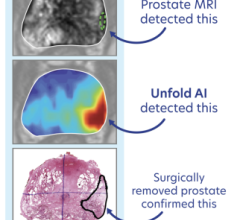September 28, 2016 — In a recent study, a Yale Cancer Center team determined that men who received hormonal therapy for prostate cancer had a net harm if they had a prior history of a heart attack. The findings were presented at the American Society for Radiation Oncology (ASTRO) meeting, Sept. 25-28 in Boston.
Hormone therapy is used for treatment of prostate cancer to block the production of androgens, or male sex hormones. Androgens are necessary for the growth and spread of prostate cancer cells. Hormone therapy suppresses the androgen production in the body and stops the spread and growth of prostate cancer cells.
This study used a previously published decision analysis model that compared quality-adjusted life years (QALYs) in men aged 50, 60 and 70 years who received radiation therapy and no hormone therapy for high-risk prostate cancer and their cardiac risk factors. The research team used data from the recently published EORTC 22991 trial to study men with intermediate-risk prostate cancer, randomized to either radiation therapy or radiation therapy and six months of hormone therapy.
Hormone therapy was associated with a net decrease of 0.3 – 0.4 QALYs in men with a prior history of heart attack. However, for all other men, hormone therapy improved QALYs (range 0.4 - 2.6). Younger men with fewer cardiac risk factors experienced the largest benefit from hormone therapy. Men at low risk for biochemical failure (≤8.7 percent at 5 years) did not benefit from hormone therapy. Further, the benefits of hormone therapy did not begin to manifest until after 7.3 years of follow-up.
“Patient age, cardiac risk, and disease recurrence risk should be considered when selecting candidates for hormone therapy in this patient population,” said Nataniel Lester-Coll, M.D., first author on the study and a resident in the Department of Therapeutic Radiology at Yale School of Medicine. “Men with a history of heart attack who are at very low risk for biochemical failure may be harmed by the addition of hormone therapy.”
For more information: www.astro.org


 August 09, 2024
August 09, 2024 








